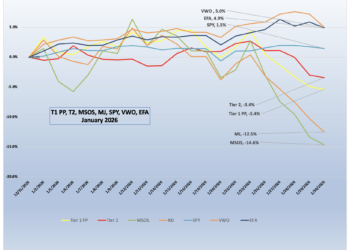The top two and three cannabis track and trace companies, in terms of state contracts, have officially joined forces under one parent company, Alleaves, just as states have begun changing their requirements for track and trace programs, opening the door for Alleaves to further expand its portfolio of state contracts.
Last year, Alleaves scooped up both BioTrack and MJ Freeway from their respective parent companies. The two companies were pioneers in cannabis track and trace and currently hold a combined 11 state contracts. Their chief competitor, Metrc, has 21 state contracts, as well as with Washington D.C. and Guam.
“Obviously there’s a lot of similarities between the BioTrack and the MJ Freeway teams,” Alleaves Chief Operating Officer Moe Afaneh told CRB Monitor News. “We’ve both been in the space for a long time. It just kind of made sense to our leadership team to combine them into our suite of projects and begin to harmonize.”
Management and operations beginning to merge
Afaneh explained that as of now, BioTrack and MJ Freeway still operate as stand-alone corporations. But they’re currently being managed together with long-term plans to formally merge, starting with the sales team.
“Generally sales is easiest because they’re business facing,” he said. “Sales people all speak the same.”
Afterward, the support teams will merge before the two technology teams are finally combined.
“We’re in the process of learning and understanding what we don’t know, figuring out where we can harmonize the different teams, and save some money by sharing technology or subscription resources,” said Afaneh.
Alleaves is already a provider of point-of-sale and payment platform services for the cannabis industry. The inclusion of track and trace platforms, especially with existing state contracts, allows the company to expand its reach across the country.
While BioTrack and MJ Freeway currently exist under the Alleaves corporate umbrella, Afaneh said there has yet to be a final decision on whether the two brands will merge.
“The idea of integrating these two brands into a single entity is under discussion internally,” he said. “Our decision-making process will carefully weigh the benefits and implications to ensure that any steps we take align with our overall mission and the interests of our stakeholders and customers.”
States moving away from RFID give Alleaves an opening
Although there are tentative plans to fully integrate the technology sides of BioTrack and MJ Freeway, Afaneh noted that the distinctions between state contracts make it inevitable that there would be slight differences among the programs.
“About 80% of track and trace is identical, but every state has their own rules,” said Afaneh. “The state limits are different, testing is different, and there’s a degree of how confined a state is given their regulations and rules.”
Afaneh said that he was not sure how rescheduling might impact the company, but he did note that state level changes are more likely to have an effect. For example, some states, such as Pennsylvania and New York, initially required a closed track and trace system, which means that the state held a contract for the service and the individual cannabis operators had to use the same product.
Pennsylvania, which is served by MJ Freeway, remains a closed system. But when New York, which contracts with BioTrack, started its adult-use program, it also began allowing operators to use third-party systems in conjunction with the state’s BioTrack system.
“There was a moment in time when the states said that they wanted everyone on the system,” said Afaneh. “With the new OCM (New York Office of Cannabis Management) contract they’ve taken a different approach.”
A key difference that Metrc has, compared to BioTrack and MJ Freeway, is it uses RFID tags. Several states with cannabis markets have specifically written into their regulations that track and trace must include RFID, which favors Metrc. But in recent months, several states have reconsidered this provision, opening the door for BioTrack or MJ Freeway to compete, once that state’s existing contract is up.
“The recent regulatory updates in states like Colorado and Oklahoma open up significant opportunities for alternative solutions. The BioTrack model, in particular, could be a strong fit in these markets, offering a potentially less costly and more flexible alternative to RFID-based systems.”











